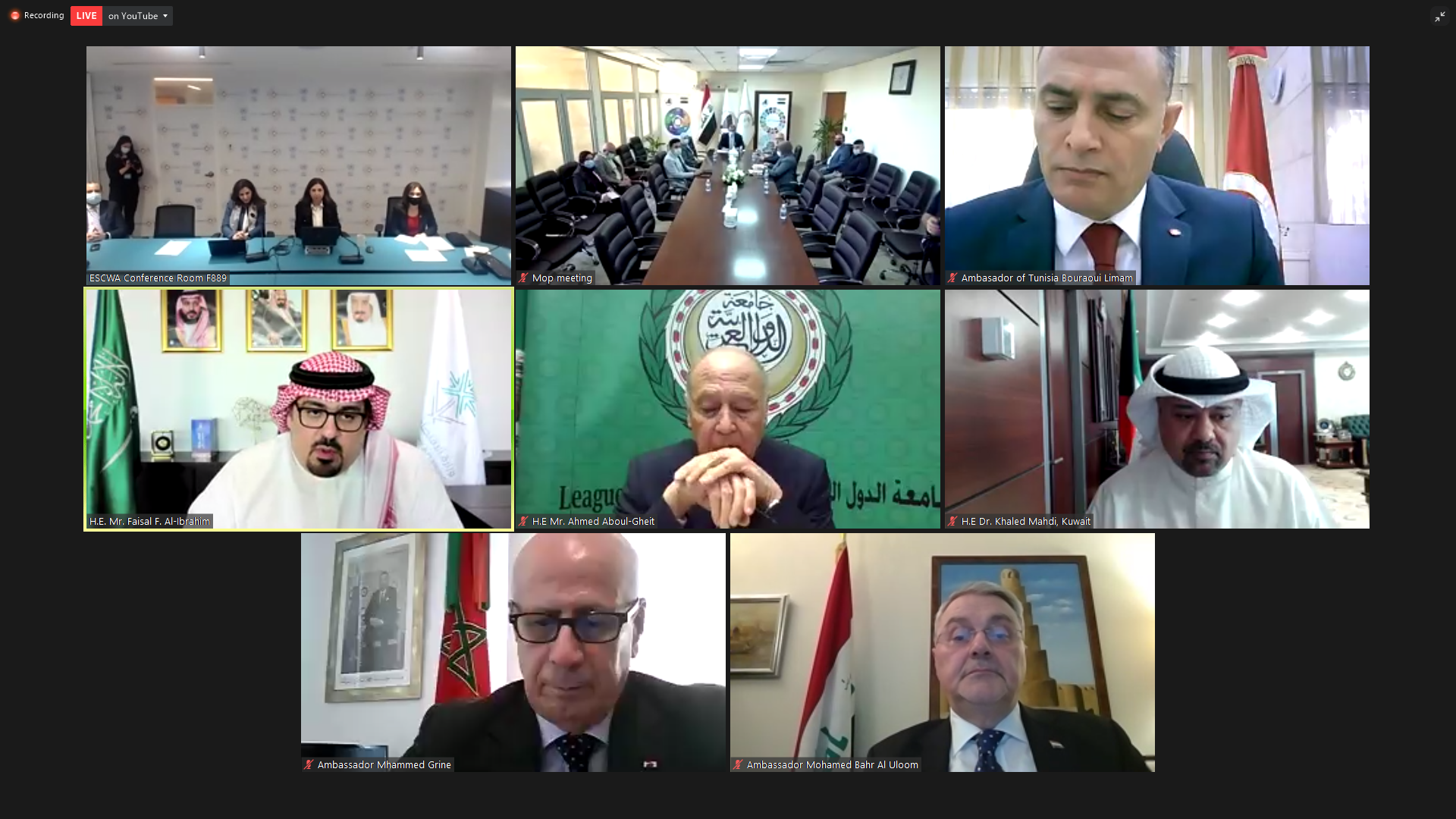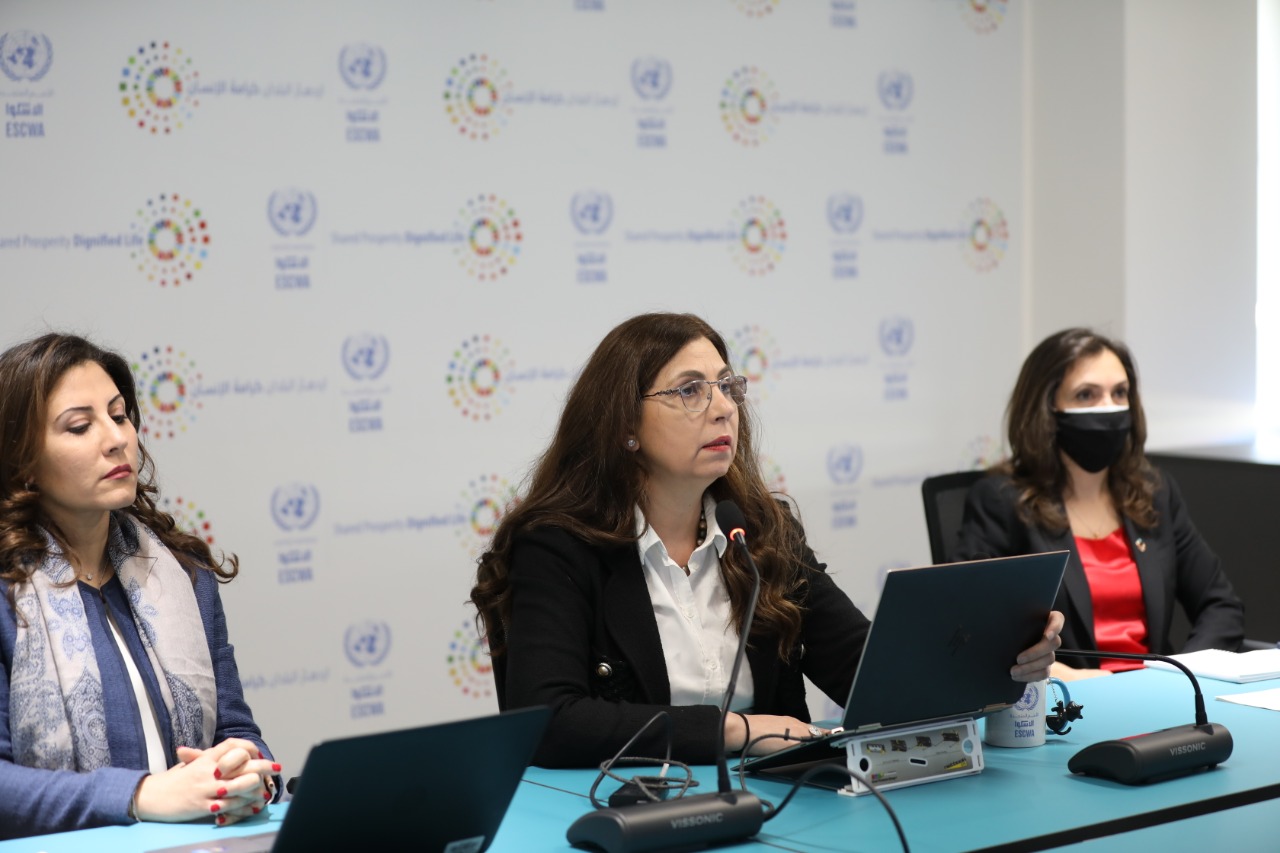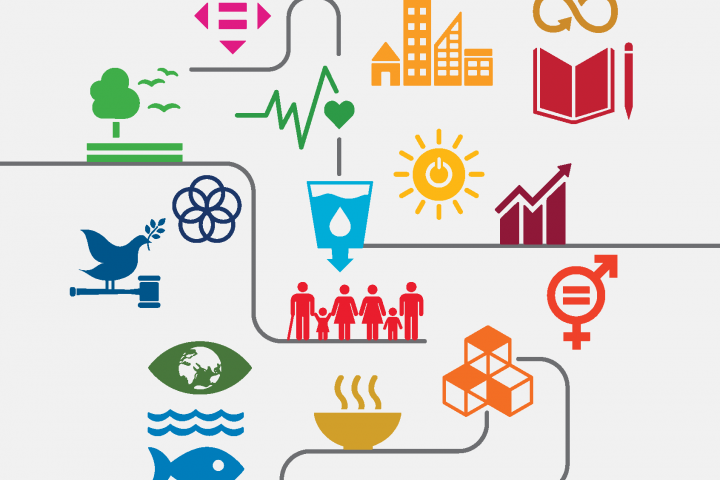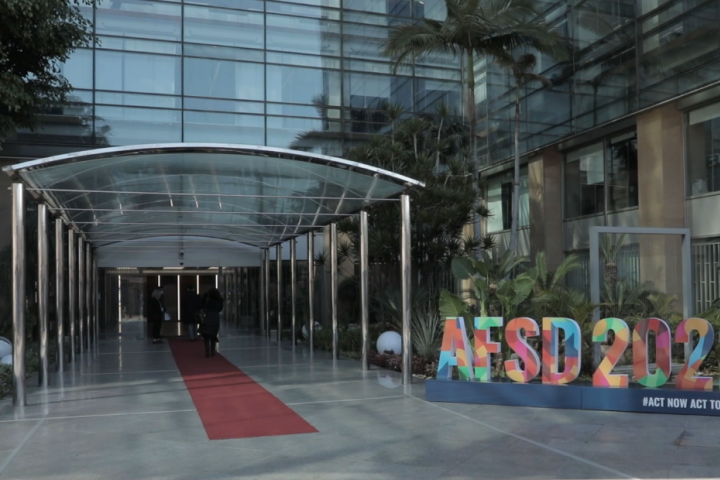The Arab Forum for Sustainable Development 2021 (AFSD) kicked off today, focusing on “Accelerating Progress on the 2030 Agenda post-COVID”. A joint effort of the UN development system in the Arab region, the Forum is held in partnership with the League of Arab States (LAS) and hosted virtually by the United Nations Economic and Social Commission for Western Asia (ESCWA).
The Forum was inaugurated by LAS Secretary-General Ahmed Aboul Gheit, Saudi Vice Minister of Economy and Planning Faisal F. Al-Ibrahim, UN Deputy Secretary-General Amina Mohammed and ESCWA Executive Secretary Rola Dashti.
In his statement, Aboul Gheit said that COVID-19 has led to a state of confusion and disruption affecting all aspects of human activity, but people showed an extraordinary ability to adapt to the situation, harnessing technology to communicate. He added that, in order to recover fast and achieve the Sustainable Development Goals, actions are required on two fronts: moving forward towards cutting the debts of the most indebted countries that are preventing them from implementing their national plans; and urging states, organizations and the private sector to provide additional resources to achieve sustainable development.
This year’s edition of the AFSD is the first one held in the Decade of Action to deliver the Global Goals, during a period where Governments and communities worldwide are trying to contain and recover from the COVID-19 pandemic. In 2020, the Arab Sustainable Development Report (ASDR) sounded the alarm that the region was not on track to achieving those Goals even before the onset of the pandemic.
In his capacity as Chair of the Ministerial Segment of AFSD-2021, Al-Ibrahim said that the outbreak of the COVID-19 pandemic in the Arab region imposed new flexible means to adapt to the challenges and limit the resulting damages. He noted the new work modalities at the level of the private, public and non-profit sectors that can be adopted to accelerate the implementation of the sustainable development agenda. Al-Ibrahim added that the AFSD-2021 will be a platform to join the efforts in addressing the challenges exacerbated by the pandemic and affecting the implementation of the global goals.
While some Arab countries have been hit harder by the pandemic than others, its impact will be felt in the region for years to come across the various dimensions of development. Consequently, dismantling the structural barriers identified in ASDR 2020 is critical to the region’s efforts towards a sustainable recovery.

To date, close to 80,000 people across the region have died from the coronavirus. Meanwhile, the pandemic has impacted food insecurity, which increased dramatically, affecting 52 million people. Women and girls are also at an increased risk of violence. In addition, rampant unemployment among young people and women has become the highest worldwide at 23%, at a time when the top 10% of the Arab region's adult population owns 76% of the wealth.
“To succeed in recovery, we must rally around peaceful solutions to end conflict where they exist; enhance governance and civic space, everywhere; always with the 2030 Agenda as our North Star,” the UN Deputy Chief said. “The United Nations is working to support you on every step of this journey. The Secretary-General continues to be a strong advocate for COVID-19 vaccines to be a global public good, available to everyone, everywhere,” she added.
Over three days, the Forum will feature a variety of plenaries, special sessions and workshop-style special events, revolving around three subthemes: (1) Accelerating action on the SDGs in the context of the COVID-19 recovery; (2) Response to the COVID-19 pandemic through specialized and priority areas; and (3) National and regional follow-up and review, including voluntary national reviews of progress towards the SDGs. Plenary sessions will be livestreamed on ESCWA channels.
Dashti reiterated the calls of ESCWA for innovative solutions to reduce or freeze countries’ debts, and for the activation of cooperation mechanisms between Arab countries. “Our plea cannot become a reality without collective action. Without solidarity and collaboration between individuals, countries, the Arab region, and the rest of the world,” she stressed. She also announced the development of an official statistics portal that facilitates access to and exchange of data between Arab Governments and United Nations organizations, as well as the "Manara" platform, which provides interactive tools, studies, indicators and courses to strengthen knowledge nationally, regionally and internationally.
Over 1,300 participants, including high-level representatives of Arab Governments, regional intergovernmental organizations, civil society networks and organizations, the private sector, parliamentarians, academics, young people and the media, will come together in a space of dialogue dedicated to fostering a culture of knowledge exchange and a spirit of collaboration.
AFSD is the primary regional mechanism for the follow-up and review of the 2030 Agenda on Sustainable Development. Its findings and recommendations, conveying key messages from the Arab region and its countries, will be submitted to the High-Level Political Forum (HLPF) on Sustainable Development, to be held in July 2021.
For more information, visit the AFSD webpage: afsd-2021.unescwa.org.
***
About ESCWA
One of five United Nations regional commissions, ESCWA supports inclusive and sustainable economic and social development in Arab States, and works on enhancing regional integration.
For further information and to organize interviews, please contact:
Ms. Maryam Sleiman, Public Information Assistant, +961-81-769-888; sleiman2@un.org
Ms. Rania Harb, Public Information Assistant, +961-70-008-879; harb1@un.org




